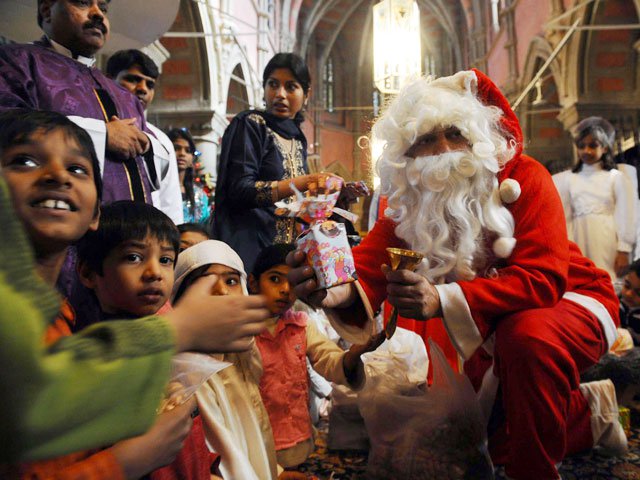
Freedom of Faith
Bina Shah, Dawn, December 24, 2017
JAN Figel, the EU’s special envoy for the promotion of freedom of religion and belief, came to Pakistan this month on a mission to highlight the importance of minority protection to the government, religious leaders, and civil society. His message: ensuring justice and well-being for its non-Muslim people works only to Pakistan’s benefit. But given Pakistan’s abysmal track record on protection of minorities, are we really ready to do the hard work on rule of law and justice to meet the standards that the international community expects from us?
Pakistan has signed the 1948 Declaration of Universal Human Rights, in which freedom of religion and belief is a cornerstone, which, as Figel pointed out in a talk on education and pluralism in Karachi, is a litmus test of other freedoms and a marker of human dignity. Our performance in this area so far has been, in a word, disappointing, and the international community has taken notice. It’s no secret that Pakistan’s status as a GSP Plus partner with the EU could be jeopardised by our inability to protect our religious minorities.
Rather than promoting the values in the Declaration of Human Rights, successive governments have striven to weaponise religion and use it as a tool of military and political power. Meanwhile, propaganda from political conservatives ties human rights to some sort of Western agenda meant to do Pakistan harm. The results have been disastrous. Today, as Pakistan confronts the latest round of attacks on imambargahs and churches, and the religious right’s protests in Islamabad last month, we can’t afford to cede any more space to those who would hijack Pakistani society and destroy its most vulnerable members.
Figel’s position as special envoy for freedom of religion and belief was created by the European Parliament to address the humanitarian crisis and the mass atrocities in Syria and Iraq carried out by the militant Islamic State group, the kidnapping and mistreatment of women, and the persecution of religious minorities including Christians, Yazidis, Kurds, Shia and even Arab Sunni communities.
Urging these communities towards reconciliation, rather than revenge, was a Herculean task, given the years of bloodshed and hatred engendered by the power vacuum after the fall of Saddam Hussein, the rise of IS, and the horrors of the Syrian war. Yet Figel described stakeholders in Iraq — religious leaders, civil society members, and political leaders — coming together to put forward a vision for their nations’ futures as a civil state based on equal citizenship, not a tyranny of the majority based on the racial or religious superiority of one group over the rest. The key word that kept coming up again and again in discussions: karama, the Arab word for dignity.
Pakistan can find its way out of the morass of religious persecution if its people are ready to take bold steps, embarking on a long process of legislative and political reform. But we must internalise, first, the importance of human dignity, and realise that our differences do not diminish each person’s value and equality in society. We must make the connection between religious persecution and the detriment of our society. Finally, Pakistanis must take ownership of this process of education and reform, relying on the EU or other foreign powers only for support, not to direct the entire agenda.
There are 44 million children out of school, and Figel isn’t the first to point out that uneducated people are more vulnerable to the vicissitudes of extremism. Many have urged regularisation and registration of the madressahs in order to prevent them from being misused as training grounds for religiously motivated violence. Yet our madressahs have been educating huge swathes of children whose parents can’t afford any better. We can’t replace this broadly accessible, albeit low-quality network with a high-quality education that remains inaccessible, and thus of little relevance to our society. We must strike a balance between egalitarianism and elitism in the education system in order to save Pakistan’s children from being infected with religious intolerance.
The EU will hold what Figel calls “strategic engagement consultations” on the process of implementing reforms that will benefit Pakistan’s religious minorities. But our society will first need a mental transformation for any legal or political process to be truly effective. We must replace our indifference to the plight of our religious minorities with a sense of responsibility and duty towards them. Women and men of conscience must refuse to use religion to manipulate the uneducated into doing violence upon their brothers and sisters of other faiths and creeds.
It will take courage to undo years of miseducation, intolerance and denial to create a vision of Pakistan as a peaceful, tolerant and pluralistic society. But our own dignity as a nation is at stake. After all, there’s no point crying for the Palestinians or the Rohingya when we’re acting like their tormentors in our own country.
![]()





